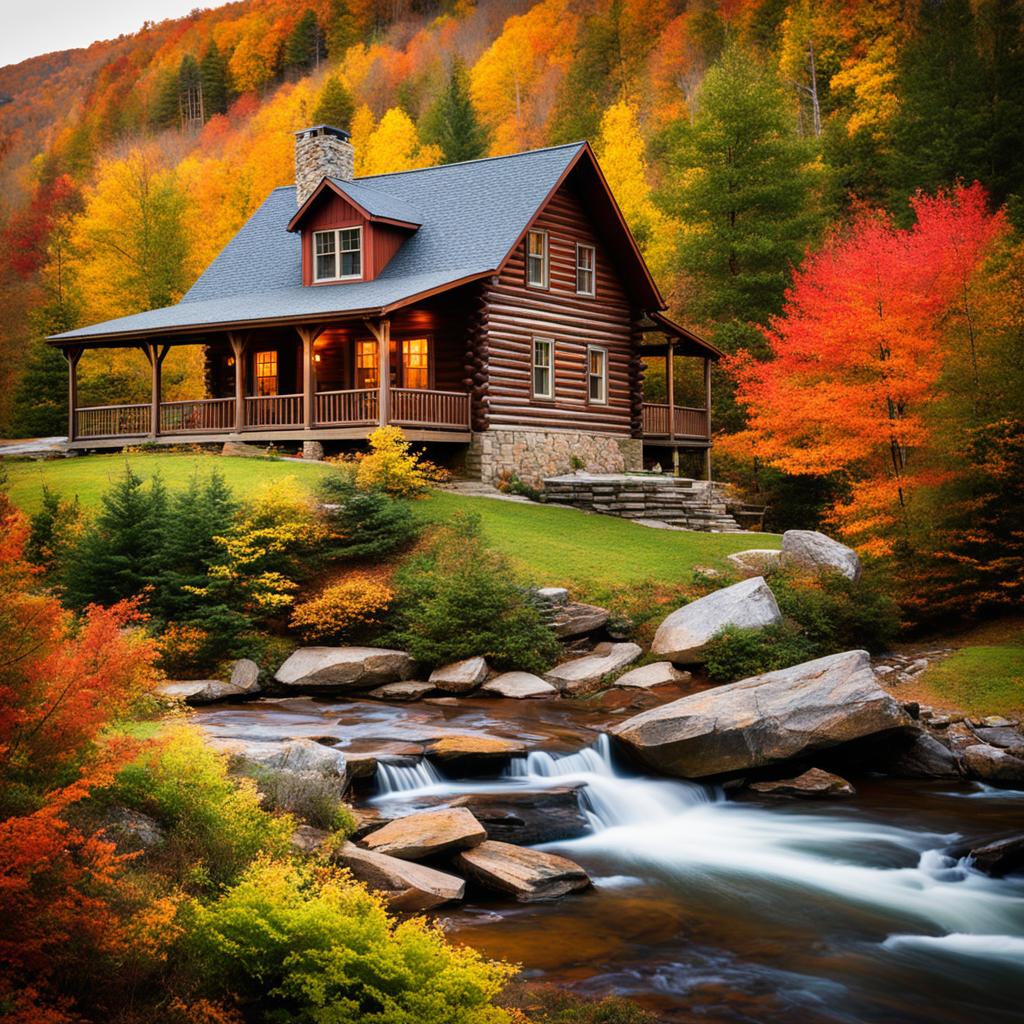Are you considering retiring in West Virginia? With its stunning natural beauty, retiree-friendly cities, and affordable living options, West Virginia has become an attractive destination for retirees. In this complete guide, we’ll explore the pros and cons of retiring in West Virginia, the best places to retire, tax benefits, healthcare access, and more. Whether you’re dreaming of retiring in the mountains of West Virginia or looking for retirement activities in the state, we’ve got you covered. Let’s dive in!
Key Takeaways:
- More than 21% of West Virginia’s population are over the age of 65, making it a retiree-friendly state.
- Morgantown and Wheeling are popular cities for retirement in West Virginia, offering a low crime rate and access to cultural amenities.
- Some of the best places to retire in West Virginia include Morgantown, Wheeling, Lewisburg, Shepherdstown, and Parkersburg.
- West Virginia offers tax benefits for retirees, including property tax relief and exemptions for Social Security and retirement income.
- While West Virginia has quality healthcare facilities, access to healthcare may be limited in rural areas, so retirees should consider their healthcare needs before choosing a retirement location.
Pros and Cons of Retiring in West Virginia
When considering retirement options, West Virginia offers a unique combination of advantages and challenges. Let’s explore the pros and cons of retiring in this beautiful state.
Pros of Retiring in West Virginia
- Low Crime Rate: West Virginia boasts a relatively low crime rate, providing retirees with a sense of safety and security in their communities.
- Natural Beauty: Retiring in the mountains of West Virginia means immersing yourself in breathtaking landscapes, lush forests, and stunning scenic views.
- Vibrant Cultural Scene: Experience a rich cultural heritage in West Virginia, with museums, historic sites, and festivals that celebrate the state’s history, arts, and music.
Cons of Retiring in West Virginia
- Cold Winters: West Virginia experiences cold winters, which may not be ideal for retirees who prefer a warmer climate.
- Limited Rural Healthcare Options: While the state offers quality healthcare facilities, access to healthcare may be limited in some rural areas, requiring retirees to consider their healthcare needs and proximity to medical services.
Retiring in West Virginia presents a unique opportunity to embrace natural beauty, immerse in a rich cultural scene, and enjoy a low crime rate. However, it’s important to consider factors such as the weather and healthcare options before making a final decision.
Best Places to Retire in West Virginia
If you’re considering retiring in West Virginia, you’ll be pleased to know that the state offers some of the best places to spend your retirement years. Whether you prefer vibrant city life or a serene mountain setting, there are retirement communities and retiree-friendly cities to suit your preferences. Here are some top destinations:
Morgantown
Morgantown is a popular choice for retirees in West Virginia. Located in the north-central region of the state, it offers a blend of urban amenities and natural beauty. The city is home to West Virginia University, providing access to educational programs and cultural events. With excellent healthcare facilities, outdoor recreational opportunities, and a low crime rate, Morgantown is an ideal place to retire.
Wheeling
Another great option is Wheeling, located in the Northern Panhandle region of West Virginia. This historic city has a rich cultural heritage and offers retirees a vibrant arts and music scene. Wheeling also boasts beautiful parks, including Oglebay Park, where you can enjoy outdoor activities like golfing, hiking, and fishing.
Lewisburg
If retiring in a charming small town is more your style, Lewisburg is an excellent choice. Located in the Greenbrier Valley region, this quaint town is known for its historic architecture, boutique shops, and art galleries. Lewisburg offers a tight-knit community and a slower pace of life, perfect for those seeking peace and tranquility.
Shepherdstown
For retirees who appreciate history and culture, Shepherdstown is a hidden gem. Situated in the Eastern Panhandle, this small town is the oldest in West Virginia and is brimming with historical landmarks. Shepherdstown is also known for its vibrant theater scene, featuring live performances by the contemporary American Theater Festival.
Parkersburg
Located in the Mid-Ohio Valley region, Parkersburg is another retirement-friendly city in West Virginia. With its beautiful riverside setting, residents can enjoy scenic views and recreational activities, such as boating and fishing. Parkersburg also offers affordable housing options and a low cost of living.
These are just a few of the best places to retire in West Virginia. Each city offers its unique charm, access to healthcare facilities, cultural events, and outdoor recreational activities. Whether you choose the vibrant city life of Morgantown or the serene beauty of Shepherdstown, retiring in the mountains of West Virginia is sure to provide a fulfilling and enriching lifestyle.
Tax Benefits of Retiring in West Virginia
Retiring in West Virginia not only offers a picturesque setting and a vibrant cultural scene but also comes with significant tax benefits for retirees. These benefits can help stretch your retirement savings further and enhance your financial well-being.
Property Tax Relief
One of the major tax incentives for retirees in West Virginia is the property tax relief program. Eligible residents who are 65 years or older can apply for property tax relief, which can result in significant savings. This program aims to make homeownership more affordable for seniors, allowing them to enjoy their retirement years without excessive financial burden.
Exemption for Social Security Benefits
Another advantage of retiring in West Virginia is that the state exempts Social Security benefits from taxation. This means that your Social Security income remains untouched by state income tax, providing you with additional funds to support your retirement lifestyle. With this exemption, you can keep more of your hard-earned money for yourself and make the most out of your retirement years.
Partial Retirement Income Exemption
In addition to the exemption for Social Security benefits, West Virginia also offers a partial exemption for other retirement income sources. A portion of retirement income, such as pensions and distributions from retirement accounts, is exempt from state income tax. This exemption provides retirees with further tax advantages and allows them to enjoy a higher disposable income during their retirement years.
“Retiring in West Virginia not only offers a picturesque setting and a vibrant cultural scene, but also comes with significant tax benefits for retirees.”
By taking advantage of these tax benefits, you can make your retirement savings go further and enjoy a more financially secure future. It’s essential to consult with a financial advisor or tax professional to fully understand the tax implications and eligibility criteria for these benefits.
Next, we’ll explore the retirement age in West Virginia and the considerations that come with it.
Retirement Age in West Virginia
When it comes to retirement age, West Virginia does not have a specific mandated age by law. Instead, individuals can retire whenever they feel financially prepared to support themselves during their retirement years. This flexibility allows retirees in West Virginia to choose a retirement age that aligns with their personal circumstances and goals.
However, it’s important to note that retirement age can have implications for certain benefits and eligibility criteria. Let’s take a closer look at two key considerations: Social Security eligibility and Medicare eligibility.
Social Security Eligibility
Social Security benefits play a significant role in retirement planning for many individuals. The full retirement age (FRA) for Social Security benefits varies depending on birth year, ranging from 66 to 67 for individuals born in 1943 or later. However, retirees can choose to start receiving reduced benefits as early as age 62 or delay benefits until age 70 for a higher monthly payout.
In West Virginia, retirees have the flexibility to retire at any age and can start receiving Social Security benefits according to the rules set by the Social Security Administration. It’s essential to consider the potential impact on monthly benefits when deciding on the optimal retirement age.
Medicare Eligibility
Medicare is a federal health insurance program that provides coverage for eligible individuals aged 65 and older. It’s important to plan for Medicare enrollment and ensure you understand the eligibility requirements.
In most cases, individuals become eligible for Medicare at age 65, regardless of retirement status. However, there are certain exceptions and special circumstances that may affect eligibility and enrollment timelines. It’s important to consult with the Social Security Administration or Medicare to understand the specific requirements and timelines.
Retiring in West Virginia offers the freedom to choose your retirement age, allowing individuals to retire whenever they are financially ready. However, it’s essential to consider factors such as Social Security eligibility and Medicare enrollment requirements when deciding on the optimal retirement age.
| Considerations | Social Security Eligibility | Medicare Eligibility |
|---|---|---|
| Age Range | Varies based on birth year | Generally at age 65 |
| Retirement Age Options | Start receiving reduced benefits as early as age 62 or delay benefits until age 70 |
Retirees can enroll in Medicare at age 65 |
| Implications | Early retirement may result in reduced monthly benefits Delayed retirement may lead to higher monthly benefits |
Enrolling in Medicare at the appropriate time ensures access to healthcare coverage |
Is West Virginia a Good Place to Retire?
Retiring in West Virginia offers a unique combination of advantages and challenges. The state is known for its picturesque natural beauty, rich cultural heritage, and retiree-friendly communities, making it an attractive destination for many retirees. West Virginia provides a serene and peaceful environment, perfect for those seeking a retirement surrounded by scenic landscapes and a close-knit community.
However, there are a few factors that retirees should consider before making the decision to retire in West Virginia. Firstly, the state experiences harsh winters, which may not be suitable for everyone. The cold temperatures and heavy snowfall can impact outdoor activities and mobility, particularly for older individuals.
Additionally, while West Virginia offers excellent healthcare facilities in urban areas, access to healthcare may be limited in rural areas. Retirees residing in remote regions may have to travel long distances to access specialized medical care. It is essential to assess your healthcare needs and proximity to healthcare facilities when considering retirement in West Virginia.
Despite these challenges, West Virginia’s affordability, natural beauty, and retiree-friendly cities make it an appealing option for those seeking a peaceful and fulfilling retirement. With careful planning and consideration, retirees can enjoy a high quality of life and an abundance of outdoor recreational activities amidst the charming Appalachian Mountains.
“West Virginia offers a serene and peaceful retirement surrounded by picturesque landscapes and retiree-friendly communities.”
In conclusion, West Virginia can be a good place to retire for those who appreciate natural beauty, a rich cultural scene, and close-knit communities. While there are challenges such as harsh winters and limited rural healthcare options, careful planning can help retirees overcome these obstacles and embrace the unique lifestyle that West Virginia has to offer.
Cost of Living in West Virginia
In West Virginia, retirees can enjoy a relatively low cost of living compared to the national average. This makes it an attractive option for those looking for an affordable retirement. Let’s take a closer look at the cost of housing, groceries, utilities, transportation, and healthcare in West Virginia.
Housing
When it comes to housing, West Virginia offers retirees a variety of options. Whether you prefer a retirement community, an apartment, or a single-family home, there are choices to suit different budgets. The median home price in West Virginia is lower compared to the national average, making homeownership more affordable.
Groceries
Retirees who enjoy cooking at home will be pleased to know that grocery costs in West Virginia are generally lower than the national average. You can find fresh produce, meats, and pantry staples at reasonable prices, helping you stick to your retirement budget.
Utilities
The cost of utilities, including electricity, gas, water, and internet services, is generally more affordable in West Virginia compared to many other states. This means that your monthly bills will be lower, allowing you to allocate your retirement savings towards other activities or expenses.
Transportation
While the overall cost of living is lower in West Virginia, it’s important to note that transportation costs may be higher than the national average. This is due to limited public transportation options and the rural nature of some areas. Retirees may need to budget for higher transportation expenses, especially if they need to travel frequently or rely on private transportation.
Healthcare
Retirees need to consider healthcare costs when planning for retirement. While West Virginia does have quality healthcare facilities, the cost of healthcare may be higher compared to the national average. It’s crucial for retirees to budget for healthcare expenses, including insurance premiums, medications, and routine check-ups.
Overall, retiring in West Virginia offers an affordable cost of living, particularly when it comes to housing, groceries, and utilities. However, transportation and healthcare costs may be higher, and retirees should factor these expenses into their retirement budget. It’s important to conduct thorough research and financial planning to ensure a comfortable and affordable retirement in West Virginia.
Real Estate Market in West Virginia
When it comes to retiring in West Virginia, the real estate market offers an attractive proposition. With affordable property options and the potential for growth, it’s no wonder that many retirees are looking to settle down here. The median home prices in West Virginia are lower compared to the national average, making it a budget-friendly choice for those seeking an affordable retirement.
Whether you’re looking for a retirement community or a standalone property, West Virginia has a range of options to suit different preferences and budgets. From cozy mountain cabins to spacious homes, you’ll find a variety of real estate choices across the state.
When considering the real estate market in West Virginia, it’s important to note that different areas may have varying property values and potential for appreciation. Some regions, such as Morgantown and Wheeling, offer a thriving real estate market with a steady demand for housing. Other towns and cities in West Virginia, like Lewisburg and Parkersburg, provide their own unique charms and real estate opportunities.
To give you a better understanding of the real estate market in West Virginia, here’s a glimpse of the median home prices in select cities:
| City | Median Home Price |
|---|---|
| Morgantown | $215,000 |
| Wheeling | $105,000 |
| Lewisburg | $196,000 |
| Parkersburg | $104,000 |
These figures provide a snapshot of the real estate market and give you an idea of the affordability in different areas of West Virginia. It’s important to consult with a local real estate agent to explore the available options and find the perfect home that fits your retirement dreams.
With its affordable real estate prices and a wide range of choices, the real estate market in West Virginia presents an excellent opportunity for retirees to find their dream retirement property without breaking the bank.
Scenic Beauty of West Virginia
When it comes to retiring in West Virginia, one cannot ignore the state’s breathtaking natural beauty. With its majestic mountain ranges, expansive forests, picturesque creeks, rivers, and reservoirs, West Virginia offers a truly remarkable landscape for retirees to explore and indulge in. Whether you are a nature enthusiast or simply enjoy the tranquility of the outdoors, retiring in the mountains of West Virginia is a dream come true.
From the rolling hills of the Appalachian Mountains to the iconic vistas of the New River Gorge, West Virginia’s scenic beauty never fails to captivate. Imagine waking up to panoramic views of lush greenery, vibrant autumn foliage, or snow-covered peaks, depending on the season. The serene landscapes and fresh mountain air create the perfect backdrop for a fulfilling retirement.
“The mountains are calling and I must go.” – John Muir
Retirees in West Virginia have a plethora of outdoor activities to choose from. The state is a haven for hikers, offering an extensive network of trails that lead to hidden waterfalls, breathtaking overlooks, and peaceful meadows. Fishing enthusiasts can cast their lines in crystal-clear streams and rivers, teeming with a variety of fish species. For those seeking a slower pace, leisurely drives along scenic byways or picnics in the midst of nature’s splendor are always an option.
Outdoor Retirement Activities in West Virginia
=======
- Hiking in the Appalachian Mountains
- Fishing in serene creeks and rivers
- Scenic drives along picturesque byways
- Picnics in idyllic meadows
- Wildlife spotting in state parks
>>>>>>> 9d4b055db5f33e74b8d11d65d5d3dcb8440aaf1f
No matter the outdoor activity you choose, West Virginia’s scenic beauty will be the backdrop for unforgettable experiences and cherished memories. The state’s dedication to preserving its natural heritage ensures that retirees can immerse themselves in the wonders of nature, all while enjoying the comforts of a retirement community or home in one of West Virginia’s retiree-friendly cities.
| Retirement Activity | Description |
|---|---|
| Hiking | Explore the numerous trails in the Appalachian Mountains and witness breathtaking views along the way. |
| Fishing | Cast your line in West Virginia’s pristine creeks and rivers, home to various fish species. |
| Scenic Drives | Embark on leisurely drives along picturesque byways, taking in the stunning landscapes from the comfort of your car. |
| Picnics | Enjoy a leisurely picnic in the midst of nature’s beauty, surrounded by rolling hills and charming meadows. |
| Wildlife Spotting | Immerse yourself in the state’s abundant wildlife by exploring the various state parks and nature reserves. |
Embrace the retiree’s paradise of West Virginia, where retiring in the mountains offers unparalleled scenic beauty and retirement activities that cater to the soul.
Cultural Attractions in West Virginia
West Virginia is a state rich in cultural heritage, offering a variety of attractions and experiences for retirees to enjoy. From museums to historic sites and lively festivals, the state showcases its unique cultural scene.
Museums
West Virginia boasts a diverse range of museums that showcase the state’s history, art, and culture. One notable museum is the West Virginia State Museum, located in Charleston. It offers exhibits on the state’s rich history, including its early settlement and involvement in the Civil War.
Another must-visit museum is the Cultural Center in Charleston, which is home to the West Virginia Division of Culture and History. It houses various exhibits that highlight the state’s artistic and cultural achievements.
Historic Sites
Retirees who have an interest in history will find plenty of historic sites in West Virginia. One iconic site is Harper’s Ferry National Historical Park, where the historic town played a significant role in events such as John Brown’s Raid and the Civil War.
The Trans-Allegheny Lunatic Asylum in Weston is an intriguing historic site known for its stunning architecture. It offers tours that provide insights into the history of mental healthcare in the region.
Festivals
West Virginia hosts numerous festivals throughout the year, providing retirees with opportunities to immerse themselves in the local culture and traditions. The West Virginia State Fair in Lewisburg is a popular annual event that showcases the state’s agricultural heritage through livestock exhibits, live music, and amusement rides.
The Mountain State Apple Harvest Festival in Martinsburg celebrates the region’s apple industry with parades, live entertainment, arts and crafts, and delicious apple-themed food.
Exploring these cultural attractions allows retirees to delve into the rich history and arts scene of West Virginia, creating memorable experiences during their retirement.
| Attraction | Location | Description |
|---|---|---|
| West Virginia State Museum | Charleston | A museum showcasing the state’s history and cultural heritage. |
| Cultural Center | Charleston | A center featuring exhibits on West Virginia’s art and culture. |
| Harper’s Ferry National Historical Park | Harper’s Ferry | A historic site with significant events from American history. |
| Trans-Allegheny Lunatic Asylum | Weston | A historic site offering insights into the history of mental healthcare. |
| West Virginia State Fair | Lewisburg | An annual fair celebrating the state’s agricultural heritage. |
| Mountain State Apple Harvest Festival | Martinsburg | A festival honoring the region’s apple industry. |
Tax-Friendly Policies in West Virginia
When it comes to retirement, financial considerations play a crucial role. That’s why it’s important to understand the tax implications of retiring in a particular state. Fortunately, West Virginia offers several tax-friendly policies for retirees, making it an attractive option for those looking to settle down and enjoy their golden years.
One of the key advantages of retiring in West Virginia is the low tax burden on retirees. The state provides exemptions for Social Security benefits and pension income, meaning that you can keep more of your hard-earned money in your pocket. Additionally, West Virginia is in the process of phasing out its taxation on Social Security income entirely, further reducing the tax burden for retirees.
Not only does West Virginia exempt certain retirement income from state taxes, but it also offers tax benefits specifically tailored to military retirees. If you’ve served in the armed forces, you may be eligible for additional tax breaks and incentives, making West Virginia an even more attractive place to retire.
Furthermore, West Virginia provides property tax credits for residents aged 65 and older, helping to offset the cost of homeownership in retirement. This can be especially beneficial for retirees who wish to settle in one of the state’s many picturesque communities or retirement neighborhoods.
Overall, West Virginia’s tax-friendly policies make it an appealing choice for retirees seeking to maximize their financial security and enjoy a comfortable retirement lifestyle. With exemptions for Social Security benefits, pension income, tax benefits for military retirees, and property tax credits for older residents, the state offers a range of incentives that can significantly enhance your retirement experience.
Take a look at the table below for a summary of West Virginia’s tax-friendly policies:
| Tax Benefits | Details |
|---|---|
| Exemption for Social Security Benefits | West Virginia exempts Social Security benefits from state income tax, allowing retirees to keep more of their retirement income. |
| Exemption for Pension Income | Retirement income from pensions is also exempt from state income tax in West Virginia, providing additional financial relief for retirees. |
| Tax Benefits for Military Retirees | West Virginia offers tax breaks and incentives specifically for military retirees, recognizing their service and dedication to the nation. |
| Property Tax Credits | Residents aged 65 and older may be eligible for property tax credits in West Virginia, helping to reduce the cost of homeownership in retirement. |
Healthcare Access in West Virginia
When considering retirement in West Virginia, one crucial aspect to evaluate is healthcare access. While the state boasts quality healthcare facilities, it’s important to note that access to these services may be limited in rural areas. Prospective retirees should carefully consider their healthcare needs before choosing a retirement location.
West Virginia is actively working to improve healthcare accessibility across the state. Initiatives are being implemented to bridge the gap and ensure that residents, including retirees, have better access to essential medical services. However, it’s essential to be aware of the current limitations, especially in rural areas.
Retirement communities in urban areas of West Virginia often have better access to comprehensive healthcare services due to the presence of medical centers, hospitals, and specialized clinics. These communities provide proximity to healthcare experts and allow retirees to receive timely and quality care when needed.
For retirees considering a more rural setting, it’s crucial to research the availability of healthcare options in the specific area. While smaller towns and more remote locations may have limited medical facilities, retirees can explore options such as telemedicine services and medical transportation programs that aim to address healthcare access challenges in these areas.
Retirees should also take into account their specific healthcare needs, including any chronic conditions or ongoing medical treatments. Understanding the proximity and accessibility of specialized healthcare providers or specialists is essential to ensure receiving the necessary care throughout retirement.
Retiring in West Virginia provides retirees with a variety of advantages, including breathtaking natural beauty and a lower cost of living. However, it’s essential to understand that access to healthcare services may vary across the state. Before making a decision, be sure to thoroughly research and consider your healthcare requirements to ensure a retirement destination that meets your needs.
Job Opportunities in West Virginia
While West Virginia offers many attractions for retirees, including its natural beauty and retirement communities, it is important to consider the job opportunities available in the state. West Virginia’s relatively rural landscape and certain areas with limited economic development may make it challenging for retirees seeking part-time work or employment options.
Retire in West Virginia offers a serene lifestyle and a slower pace of living, which can be appealing for retirees. However, finding suitable job opportunities may require some effort and flexibility. It is crucial to carefully consider your personal financial situation and expectations before retiring in West Virginia.
Retirees who are interested in remaining active in the workforce can explore various job opportunities, such as part-time positions, consulting work, or starting their own small businesses. While there may be limitations in certain industries or regions, retirees with experience in fields such as education, healthcare, hospitality, and retail may find more employment options.
“Retirees looking to stay engaged in the workforce can consider part-time positions, consulting work, or entrepreneurship.”
To provide a comprehensive view of the job market in West Virginia, we have compiled a table summarizing the top industries and job opportunities in the state:
| Top Industries | Job Opportunities |
|---|---|
| Education | Teaching positions in schools and universities, tutoring services |
| Healthcare | Nursing, caregiving, healthcare administration |
| Hospitality | Hotel and restaurant staff, event planning, tourism |
| Retail | Customer service, sales, management |
| Small Business | Entrepreneurship opportunities, local retail and services |
It’s important to note that job opportunities may vary depending on the region within West Virginia. Urban areas such as Charleston and Morgantown may offer more diverse employment options, while rural areas may have more limited opportunities.
Retirees considering West Virginia as their retirement destination should carefully assess their financial stability and consult with local employment agencies, community resources, and networking groups to explore potential job opportunities that align with their skills and interests.

Transportation in West Virginia
Retiring in West Virginia offers a serene and picturesque environment, but it’s important to consider transportation options for retirees. While the state boasts beautiful mountainous terrain and breathtaking views, it also presents some challenges in terms of transportation accessibility.
West Virginia has limited public transportation options, making it particularly challenging for retirees who no longer drive or prefer not to. Public transit systems, such as buses and trains, are not as extensive as in major cities, which can affect the mobility of retirees in certain areas. The reliance on private vehicles is more pronounced in West Virginia, especially in rural communities and townships far from major cities.
The mountainous topography of West Virginia, while offering scenic beauty, can also pose challenges to transportation infrastructure. The winding roads and steep mountain passes can make driving difficult, especially during inclement weather conditions. It’s essential for retirees to be aware of the potential challenges associated with driving in hilly terrains and exercise caution accordingly.
Driving in West Virginia’s mountainous regions requires extra care, especially during winter months when icy roads and limited visibility can make travel hazardous.
For retirees who prefer to rely on alternative transportation options, such as rideshare services or taxi companies, availability may be limited in some parts of the state. It’s advisable for retirees to research and plan transportation arrangements in advance to ensure they have access to necessary services.
Table: Transportation Options in West Virginia
| Transportation Option | Availability in West Virginia | Pros | Cons |
|———————–|———————-|—————–|——————|
| Public Transit | Limited | – Cost-effective
– Reduces reliance on personal vehicles | – Limited schedules and routes
– Not suitable for rural areas |
| Private Vehicle | Widely available | – Increased mobility
– Flexibility in scheduling | – Maintenance and ownership costs
– Challenges in mountainous terrain |
| Rideshare Services | Varied availability | – Ease of use
– Convenient for short trips | – Limited availability in rural areas
– Potential affordability concerns |
| Taxi Services | Varied availability | – Professional drivers
– On-demand service | – Limited availability in rural areas
– Higher costs compared to other options |
To enhance transportation accessibility for retirees, some retirement communities in West Virginia offer shuttle services or organize group outings, allowing residents to participate in various activities and access essential amenities conveniently.
An important consideration for retirees in West Virginia is the proximity to major cities and transportation hubs. Living closer to cities like Morgantown or Charleston can provide better access to transportation options such as airports and bus terminals, making travel more feasible for retirees.
While West Virginia’s transportation infrastructure may present challenges, it’s important for retirees to plan and explore transportation options based on their specific needs and preferences. The choice of retirement communities in West Virginia may play a significant role in ensuring convenient transportation access for retirees.
Conclusion
Retiring in West Virginia offers a mix of advantages and challenges. The state’s natural beauty, affordable cost of living, and cultural attractions make it an appealing choice for many retirees. With its stunning mountain ranges, forests, and scenic views, West Virginia provides ample opportunities for outdoor activities and a serene retirement experience.
Moreover, the affordable cost of living in West Virginia compared to the national average makes it an attractive option for retirees looking to make the most of their retirement savings. The state offers a range of retirement communities that cater to the needs and preferences of retirees, providing a supportive and engaging community environment.
However, it’s important to consider certain challenges when contemplating retiring in West Virginia. The state’s weather extremes, including cold winters, may not be suitable for everyone. Additionally, limited healthcare access in rural areas and relatively fewer job opportunities can present challenges for retirees. It’s crucial for retirees to carefully evaluate their healthcare needs, weather preferences, and employment expectations before making a final decision.
FAQ
What are the pros and cons of retiring in West Virginia?
What are the best places to retire in West Virginia?
Are there tax benefits for retirees in West Virginia?
Is there a specific retirement age mandated by law in West Virginia?
Is West Virginia a good place to retire?
What is the cost of living like in West Virginia?
How is the real estate market in West Virginia?
What is the scenic beauty like in West Virginia?
What cultural attractions are there in West Virginia?
Are there any tax-friendly policies for retirees in West Virginia?
What is healthcare access like in West Virginia?
What are the job opportunities like in West Virginia?
How is transportation in West Virginia?
Source Links
- https://www.unbiased.com/discover/retirement/retiring-in-west-virginia
- https://www.ezhomesearch.com/blog/the-pros-and-cons-of-retiring-to-west-virginia/
- https://www.topretirements.com/state/west virginia/
Money posts:
![Retire in Virginia[B]](https://moneytology.com/wp-content/uploads/2024/02/Retire-in-VirginiaB-150x150.jpg) Retiring in Virginia[B]: Complete Guide (2024)
Retiring in Virginia[B]: Complete Guide (2024)
 Retiring in Wyoming: Complete Guide (2024)
Retiring in Wyoming: Complete Guide (2024)
 Retiring in Oklahoma: Complete Guide (2024)
Retiring in Oklahoma: Complete Guide (2024)
 Retiring in New Jersey: Complete Guide (2024)
Retiring in New Jersey: Complete Guide (2024)
 Retiring in Alabama: Complete Guide (2024)
Retiring in Alabama: Complete Guide (2024)
 Retiring in Florida: Complete Guide (2024)
Retiring in Florida: Complete Guide (2024)
 Retiring in Vermont: Complete Guide (2024)
Retiring in Vermont: Complete Guide (2024)
 Retiring in Ohio: Complete Guide (2024)
Retiring in Ohio: Complete Guide (2024)

